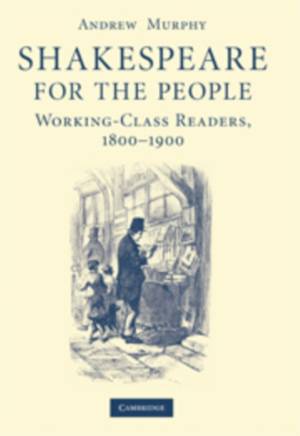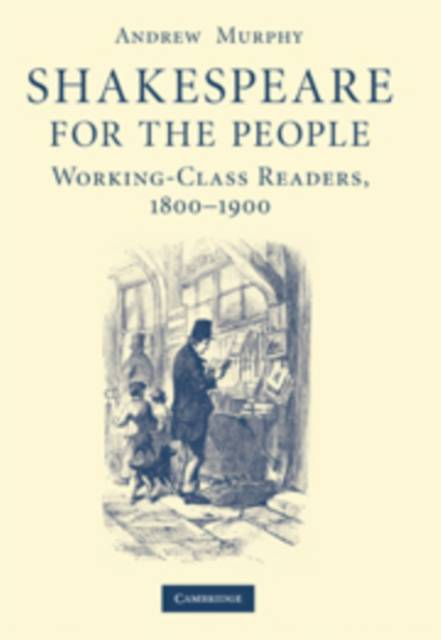
- Afhalen na 1 uur in een winkel met voorraad
- Gratis thuislevering in België vanaf € 30
- Ruim aanbod met 7 miljoen producten
- Afhalen na 1 uur in een winkel met voorraad
- Gratis thuislevering in België vanaf € 30
- Ruim aanbod met 7 miljoen producten
Zoeken
€ 82,45
+ 164 punten
Uitvoering
Omschrijving
Beginning by mapping out an overview of the expansion of elementary education in Britain across the nineteenth century, Andrew Murphy explores the manner in which Shakespeare acquired a working-class readership. He traces developments in publishing which meant that editions of Shakespeare became ever cheaper as the century progressed. Drawing on more than a hundred published and manuscript autobiographical texts, the book examines the experiences of a wide range of working-class readers. Particular attention is focused on a set of radical readers for whom Shakespeare's work had a special political resonance. Murphy explores the reasons why the playwright's working-class readership began to fall away from the turn of the century, noting the competition he faced from professional sports, the cinema, radio and television. The book concludes by asking whether it matters that, in our own time, Shakespeare no longer commands a general popular audience.
Specificaties
Betrokkenen
- Auteur(s):
- Uitgeverij:
Inhoud
- Aantal bladzijden:
- 256
- Taal:
- Engels
Eigenschappen
- Productcode (EAN):
- 9780521176552
- Verschijningsdatum:
- 30/09/2010
- Uitvoering:
- Paperback
- Formaat:
- Trade paperback (VS)
- Afmetingen:
- 152 mm x 229 mm
- Gewicht:
- 381 g

Alleen bij Standaard Boekhandel
+ 164 punten op je klantenkaart van Standaard Boekhandel
Beoordelingen
We publiceren alleen reviews die voldoen aan de voorwaarden voor reviews. Bekijk onze voorwaarden voor reviews.







